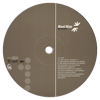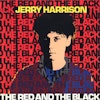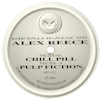With a prolific output since his emergence on the scene in 1993, Roni Size took things to the next level in 1997 when his New Forms album won the coveted Mercury Music Prize. The ground-breaking project was a critical and commercial success and contained acclaimed tracks such as “Brown Paper Bag” and “Heroes.” Its release was preceded in late 1996 with the Reasons For Sharing EP, which contained an addictive jazzy roller called “Trust Me,” which had been tearing up dancefloors on dubplate and would go on to be a fixture in DJs boxes for years to come.
Roni Size: Back in the day, we were in the studio as much as possible. We didn’t have much equipment at the time so myself, Krust, Die and Suv were using Smith & Mighty’s studio; Tricky and Flynn & Flora would be in there as well. We did that until we could afford to build our own studio, Studio Drum, which we all shared. It was in a small room in an office block. We bought some S760 samplers, some Tannoy speakers and we would play the music so loud bits would fall out of the ceiling. We ended up having a time restriction where we could only make noise between 8pm and 7am, when the people next door came into work.
Weekends we would usually be driving around the country DJing. Friday or Saturday we would go to London and go around the record shops. There was Blackmarket, Lucky Spin and Horace in Camden Market as well as a few others. You would see everyone out and about trying to get the white labels first. We would take our own white labels up and do a bit of swapping and trading. Ray Keith and Nicky Blackmarket were like the A&R men of drum n bass and jungle. You had to get to Blackmarket on a Saturday morning, and it was like being in a club. You could pick up records without even knowing who they were by; there were no preconceptions about certain artists. Those were really good memorable times.
We were all competitive, but it was a friendly competition. Moving Shadow had set the standard with production, especially with Foul Play. There were people like Rap and Aston, Wax Doctor, Dillinja, 4hero, Zinc and Adam F. Then there was Gwange who was on Legend Records; I used to love what he did, he was a bad boy!
I was putting out a lot of music on V Recordings and Full Cycle but being a part of a major label was really different. Gilles Peterson and Paul Martin from Talkin Loud had picked up on the jazzier side of what I was doing. They found it more palatable [than some other styles of drum & bass] and it was something they could latch on to, and because of that, I got a record deal. When they signed me, I vowed I wouldn’t do it unless I could bring my crew with me. Krust and I got deals, and then we managed to get everyone else on retainers. I used to get asked why my name was at the top, that was because it was my deal, but I wasn’t going to do it without Krust, Die, Onallee and Si John. That they all agreed to be involved made it a beautiful thing.
“Trust Me” was made up from samples but I can’t remember where I took them from. Record companies would just give us loads of vinyl, so we would go home and sample the fuck out of them. The drums and the drop were all me though. I included it as a DJ tool on the EP.
Playing it live was great. We would play “Trust Me,” and you could tell there were people that didn’t know it was a Roni Size tune! There were people who loved what I did for the Kool FM crowd and people who loved what I did with Reprazent, so there were two sides of Roni. Some artists don’t have to worry about trying to please both sides of the coin, whereas I had to juggle it a bit, but it’s something that I managed to do. People used to hate me [for the Reprazent material] but then find out I did “Trust Me” and tracks like “Warning” and the Dope Dragon stuff and they hadn’t known that was me. We used aliases because we had too much music to put out and because it was fun.
“Trust Me” came back into the world around 2010 when Andy C started playing it. He can find an old gem and revitalize it, and then everyone starts playing it. I started playing it again because Andy was playing it! Shy FX dropped it at the Red Bull Soundclash in 2014; it bust up the dance, and he won the clash.
It was made in about an hour, what tune starts like that though? A couple of stabs and then it drops. On the original version, the sample is slightly out of time, but it still works though. It was like that in the old school days; you had to get the tune done before the electric meter ran out! The number of tunes we lost because we didn’t have money for the meter. Back then it could take thirty minutes to save a tune on a floppy disk, so we would leave it, go out and hope that it would still be there when we got back and that the electric hadn’t run out. We benefited from not being able to tweak things. You would have just one version on DAT, unlike now where you can have different versions saved. Using the old mixing desks, as soon as you moved something, it was lost, unlike now where you can hit recall.
Most of our tracks would be on dubplate for quite a long time. That was something that only a privileged amount of people got, and no matter what you did, you were not going to get it! We had so much music coming out that we had to try and schedule it all in. Some of it still hasn’t come out. We had a residency at The End, and if you were going to test any tunes out, you would do it down there. The system in there… oh my god. If you had fillings and they weren’t put in properly, you’d be looking on the floor for them. The End was a great club with a great vibe, and that was the testing ground. You could really test it there and get a real response. The End and Movement at Bar Rumba were the spots.
It was at a time when I was just rolling out tunes. I would never really rate any of my tracks though. Some of them would get put on DAT, and I would just give them to Bryan Gee or Frost or someone, and they’d play it and get a crowd response. “It’s Jazzy” was in the bin; it wasn’t going to be released, but Bryan Gee picked it out. What happened was that Alex Reece had made “Pulp Fiction” and everyone was going crazy over it; it was great but simple, and that was what Alex Reece did, so I thought I’d do my own version. I was all about the drums, the bass and the energy so I found these wicked pianos and got that bassline, rinsed out that bass and put some breaks in there and rolled it out and thought: that’s how it should've sounded, to my ears.



